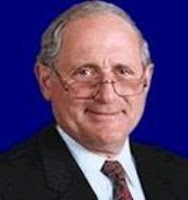The Climate Data Shuffle
SEARCH BLOG: WEATHER
I wrote to Joe D'Aleo, one of the primary writers at ICECAP, with the following after reading so much about this summer being the hottest in 25 or 50 or 2 million years:
Joe,Joe reacted with some frustration:
I don't know if you track weather in this fashion [shown on my blog]:
SE MICHIGAN LOCATION - SINCE 2-1-08, THERE HAVE BEEN 170 MORE DAYS BELOW NORMAL THAN ABOVE
INCLUDES JULY 2009 PARTIAL DATA. Data from www.weather.com.
My observation to Joe was:NCDC says the only state B[elow] N[ormal] this year so far is ND. It is in their 'adjusted' data set, the 25th warmest ever year to date.... Thanks to Anthony's [Watts - Watts Up With That?] favorite Tom Peterson, they yanked the U[rban] H[eat] I[sland] adjustment in 2007, never had a UHI adjustment in [the] global [dataset].And for the global, the last year, stopped using satellite data in their ocean data set, which resulted in an instant jump up especially in the S[outhern] H[emisphere]. When the ARGO buoys showed cooling, they had to be 'recalibrated'. In the climate world, models are the truth, when data disagrees, it must be faulty. If it agrees, no problem (even with 90% poor to very poor siting).The oceans in June for the globe were [claimed to be] the warmest ever (in 130 years), the land and sea 2nd warmest, even though UAH had June [the] 15th coldest, [and] RSS [Remote Sensing Systems, Santa Rosa... the] 14th coldest in 31 years....
The problem is that the "baseline"... what is average or normal seems flexible as well as the recorded temperatures. They [NCDC] seem to be able to screw with the data, but then argue that the data is sacrosanct, but so-called "anecdotal" information such as my tracking of local temperatures are deemed unreliable.The issues that remain are: were adjustments made, why were or were not adjustments made, how were the adjustments made, and were the adjustments thoroughly considered or even justified in the manner they were done?
"And if all others accepted the lie which the Party imposed—if all records told the same tale—then the lie passed into history and became truth. 'Who controls the past' ran the Party slogan, 'controls the future: who controls the present controls the past.'"
- George Orwell, 1984, Book 1, Chapter 3
hmmmmmmm.
Others are looking into this... very respected and qualified others. I'll keep you posted as I learn more as I'm sure will Joe D'Aleo at ICECAP.
 Regardless, Senator Levin [MI], in his email to me, strongly defends the alarming scenes of future climate destruction based on very questionable data and models. [you should read that linked communication]. I'm sure Sen. Levin has been briefed by experts on at least one side of the controversy and believes what he has been told.
Regardless, Senator Levin [MI], in his email to me, strongly defends the alarming scenes of future climate destruction based on very questionable data and models. [you should read that linked communication]. I'm sure Sen. Levin has been briefed by experts on at least one side of the controversy and believes what he has been told.After all, millions of others trust experts... not only in areas of science, but wherever those who grab the mantel of an expert ply their trade. If science were a game of how many people believed something and that was sufficient as scientific proof, we'd accept the simplest explanations.
Simply, easy answers are always satisfying and convincing to the uncritical... daresay I unskeptical?Always ask: "what's in it for them" and then follow the money. I don't believe money is the object for Sen. Levin; he is a convert. Somehow, he even believes the "accounting" accompanying the proposed legislation. But there are too many politicians who are invested heavily into schemes that will profit grandly from our tax money and economic hardship.
ΔCO2 → Δ° ... not quite the same as E = MC2 .... Both are short, but the latter is not really so simple and easy. Neither is reality!
My position and response:
Dear Sen. Levin:There is no reason to be duplicitous with the senators. Our Congressmen need to hear clearly the reasons and reasoning behind opposition to what they have been told is popular or obvious.
Thank you for your response. There is more than ample evidence that the scenarios in the message prepared for you below are incorrect and based on very faulty science and analysis.
I will be doing what I can to dissuade popular support for this effort. The economic and political consequences of this legislation for the U.S. will be onerous.
Sincerely,
Bruce Hall
Perhaps they might listen for no other reason than, if they follow the money, it leads to those with a vested financial or power interest in the passage of the legislation in question... not necessarily to those who seek real, scientific answers. Real answers are more important ultimately... even if those answers are slightly more complex and difficult than ΔCO2 → Δ°. And the correct course of action may well have little or nothing to do with schemes to limit CO2 through massive government programs.RECOMMEND YOU READ THIS and THIS.
But maybe our Congressmen do not want to know the real answers. That's a more difficult course than the simple, easy answers. And that's a more difficult situation for those of us seeking real answers before starting unnecessary solutions.
..









